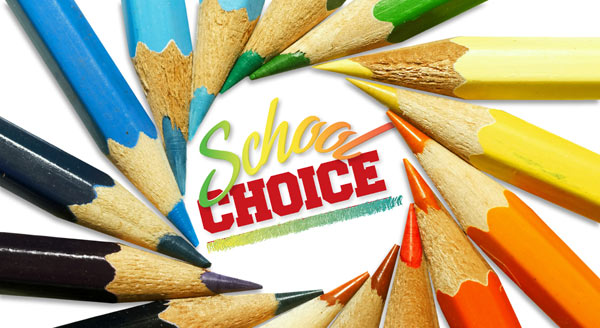
Magnet Schools:
What’s the Attraction?
Magnet schools were created in the 1960s and 1970s as a way to desegregate public schools. The idea was to attract (hence the term “magnet”) students from outside the established school zones by offering extra courses in the arts, technology and other appealing areas. The main goal was to encourage parents and children to reduce segregation in the schools voluntarily, and the idea proved a success.
Today, over 40 years later, the schools still serve as a tool to increase diversity among student populations, but more than that, they’ve become a symbol of academic opportunity. Today’s magnet schools and programs (including Marion County’s two schools and nine programs) offer students a distinctive curriculum that has become highly competitive. Each school and each program has its own unique admission criteria, and each has a formal application process. Students can apply and enroll in any grade as long as eligibility is met. Parents should note, however, that no school bus service is available for students enrolled in magnet programs.
In the following pages, we take a brief look at what each of Marion County’s magnet schools and programs offers its students. For additional information, visit the Marion County Public School’s website at marion.k12.fl.us, where you will also find sites for individual schools.
Magnet Schools
Madison Street Academy
In one room, girls and boys stretch, trying out the latest yoga moves as upbeat music fills the studio. In the next room, a group of fourth-graders practice “Mary Had A Little Lamb” on the violin. It’s their first week so the notes are still a bit shaky. In yet another room just down the hall, students are learning about Renaissance artists.
At Madison Street Academy of Visual and Performing Arts, the visual and performing arts supplement a strong core curriculum. Madison Street stresses academic excellence in math, science, language arts and social studies, while offering students in kindergarten through fifth grade an opportunity to expand their interests in fine arts, communication, technology and foreign languages.
A teacher and administrator for nearly two decades, Jaycee Oliver, Madison Street’s principal, describes the school as having a “very balanced program.”
“Just one of our plusses is our family-like atmosphere,” says Oliver. “With only 464 students, we all know one another. The vast majority of the classes are contained within our brick-and-mortar building, and we see each other on a daily basis.”
A quick tour of Madison Street reveals colorful artwork covering the walls, students working diligently on laptops and plenty of laughter and smiles. According to the Carnegie Foundation, students who participate in the arts for at least three hours a day are four times more likely to be recognized for academic achievement, four times more likely to participate in a math or science fair and three times more likely to win an award for school attendance.
“Seeing students shine academically is amazing,” says Oliver. “But seeing them shine socially and in the arts is truly special.”
An A-rated school for the past nine years, the teachers and administrators at Madison Street are obviously doing something right. And whether held before, after or during school hours, extracurricular activities are pervasive at Madison Street. Sidewalk art, clay art, creative drama, international choir, musical keyboarding, jazz, television production, tap, violin and juggling are just a few of the programs offered.
As part of every school week, all students also spend time at the school’s computer lab—40 minutes for kindergartners, 50 for first- through fifth-graders. Here, they learn the ins and outs of the Microsoft Office Suite, the basics of keyboarding and some graphic design.
“We’d be doing a real disservice if we didn’t start our children on the computer at a young age,” says technology teacher Cindy Leppala. “Children are exposed to computers very early and by third grade many have already established bad computer habits.”
In addition to the basics, Internet safety and etiquette is also covered.
“I think many parents are looking for an enriched educational program for their children,” says Oliver. “Children test to be enrolled at magnet schools, so we have kids who learn at a higher, quicker pace, allowing for plenty of time for the extras.”
Madison Street Academy of Visual and Performing Arts
401 NW MLK Jr. Ave., Ocala (352) 671-7250

Dr. N.H. Jones
Touring Dr. N.H. Jones Elementary School, Principal Don Raymond points out a moon tree in the center of campus, a nearby citrus tree and mentions both a hydroponic and water garden that students worked to cultivate.
“We were going to raise fish,” he says with a smile. “But when the kids found out the fish would be sold for people to eat, they changed their minds. Instead, we just raised water plants.”
N.H. Jones is an elementary academy specializing in math, science, technology and media production, all with a very hands-on approach.
A fully integrated, technology-friendly school, N.H. Jones’ typical classroom features six computer stations, plus the teacher’s station. Raymond stresses that the computers (they also have four traveling laptop carts) and other technology supplement the lessons, allowing teachers to differentiate and then tailor the programs to suit an individual student’s needs and strengths.
“The earlier you expose the kids to technology, the easier it is for them,” says computer instructor Daniel Yerdon. “Technology touches every aspect of their lives—at school, home and eventually work. We do everything from skill-based learning to PowerPoint presentations to making movies to podcasting.”
“Sure there is book work and time spent studying at desks,” adds Raymond. “But the computers are used as a supplement to topics they’re learning and researching. We pride ourselves on a lot of hands-on, research-based learning and have been very successful with it.”
Take one of the kindergarten classrooms, for example. A large tub filled with sand has several sized balls in it. Above it, pictures of moon craters in varying sizes are taped to the wall. The kids dropped their balls into the sand to make their own craters. It’s that kind of hands-on experience that will make a child not only enjoy learning but retain the concept longer than being lectured out of a textbook.
“Our science lab, which each student visits once every six days, is full of hands-on experiences,” says Raymond. “We like to get our hands dirty here while we explore the scientific method. We learn by doing.”
The only area school to be named a Blue Ribbon school by the Florida Department of Education, N.H. Jones has always been ranked first or second academically since becoming a magnet school. Schooldigger.com, a site used by parents to research schools, named N.H. Jones as the ninth best school out of 1,890 elementary schools in the state in terms of quality.
“Much of our student’s success can be credited to our outstanding teachers,” says Raymond. “We actively seek out teachers who believe in project-based learning and who want to make a positive difference in the lives of our students.
“Academically our kids shine,” he adds. “But they are also very social-minded as well. We emphasize the need to give back to our community. We are a warm, loving school where children are able to achieve their full potential.”
Dr. N.H Jones Elementary
1900 SW 5th St., Ocala (352) 671-7260
Magnet Programs
Advanced Academics Integrated Technologies (AAIT)
The only magnet program specifically designed for sixth-, seventh- and eighth-graders, Howard Middle’s AAIT program provides students with all the basics, supplemented by integrated technology in every course.
Computers, SMART boards, digital projectors and electronic teaching pads are the norm at Howard.
Collaborative group work, project-based learning and daily independent reading and homework assignments are the basis of all Howard classes.
“This program gives kids who come from a magnet program in elementary school the chance to continue their magnet experience,” says Christian. “AAIT keeps the students in the same mindset of working in academic classes that expect a little more from them.”
Howard Middle School
1108 NW MLK Jr. Ave., Ocala (352) 671-7225
Advanced International Certificate of Education (AICE)
The AICE program not only prepares students for college enrollment with up to 45 hours of college credit, but it also provides them with the skills required to be successful once they are at the university level.
“Kids in any academically advanced program like AICE have to have their acts together,” says Marion County Public Schools Public Relations Officer Kevin Christian. “Before being admitted into such a program, students have to have a proven track record of being able to do well in such a rigorous program.”
Open to area juniors and seniors who meet the academic criteria, the program is administered by the University of Cambridge. The International General Certificate of Secondary Education is an optional program for freshman and sophomores hoping to enter the AICE program in their junior year.
Belleview High School
10400 SE 36th Ave., Belleview (352) 671-6210 North Marion High School 151 W. Hwy. 329, Citra (352) 671-6010
Cambridge Program
The Cambridge International Primary Program is based at the University of Cambridge and designed to prepare children for a successful academic career from an early age at Reddick-Collier Elementary.
The curriculum emphasizes writing and oral development, research, independent and group work, and the application of skills and knowledge to solve real-world problems and situations—all the while promoting global understanding and compassion.
Students in this program must be technologically literate and able to complete daily homework and reading assignments.
The Cambridge Checkpoint Program continues at North Marion Middle, where middle school students can take high school-level courses.
“These programs are a precursor to the AICE program at Belleview High,” says Christian. “The Cambridge Program allows kids to get established in the academic programs early on.”
Reddick-Collier Elementary School
4595 W. Hwy. 316, Reddick (352) 671-6070 North Marion Middle School 2085 W. Hwy. 329, Citra (352) 671-6035

Early College Program
Think of the Early College Program at West Port High School as a campus within a campus. Here, qualified professors from the College of Central Florida meet with students at the West Port campus to instruct them in college-level courses.
“This is a unique program, and it’s the only one like it in the area,” says Christian. “Students get the college courses they need without leaving their high school campus. It’s a new spin on dual enrollment.”
Students in this program earn both college and high school credit simultaneously and receive college-level instruction during regular school hours. There is no college tuition or book fees, and the majority of the courses offered are general education-based and easily transfer to upper-division schools.
West Port High School
3733 SW 80th Ave., Ocala (352) 291-4000
EMIT Program
The Engineering & Manufacturing Institute of Technology (EMIT) at Forest High School combines honors-level high school instruction with several years of computer-assisted drafting in a state-of-the-art facility.
“This is a program for students who are very, very driven,” says Christian. “It’s heavy on math and science, and the kids go as far as to build robots and take them to very competitive state competitions.”
Christian adds that this program is truly designed for those kids who will go into the higher-level engineering and science jobs.
EMIT’s unique curriculum is based on high-tech approaches, preparing students for jobs in architecture, manufacturing, drafting and design, and engineering.
Forest High School
5000 SE Maricamp Rd., Ocala (352) 671-4700
International Baccalaureate Program
While you may think of high school students when the International Baccalaureate Program is mentioned, the internationally recognized program is actually available at all grade levels.
“It was originally created for diplomats’ children,” says Christian. “At the elementary level, the program prepares students to become active participants in the lifelong journey of learning.”
Six themes of global significance allow students to “step up” beyond the confines of everyday learning in the following areas: who we are, where we are in place and time, how to express ourselves, how the world works, how to organize ourselves and how to share the planet.
Once in middle school, IB students already have a broader sense of the world and are required to study not only their native language but also a second language in addition to humanities, technology, math, science, the arts and more.
High school students in ninth and 10th grades enroll in pre-IB courses in preparation of completing the IB program during their junior and senior year.
“The IB program is very intense,” says Christian, “and high school students who successfully complete the program graduate with a full year of college credit.”
Oakcrest Elementary School
1112 NE 28th St., Ocala (352) 671-6350 Howard Middle School 1108 NW MLK Jr. Ave., Ocala (352) 671-7225 Lake Weir High School 10351 SE Maricamp Rd., Ocala (352) 671-4820 Vanguard High School 7 NW 28th St., Ocala (352) 671-4900
Marion County Center for the Arts (MCCA)
For high school-aged children wishing to pursue interests in the visual (sculpting, painting, photography, etc.) or performing (drama, dance, etc.) arts, the Marion County Center for the Arts at West Port High is the place to go.
“If you’re into the arts, this is the magnet school in our district,” says Christian. “The school provides a very creative atmosphere, but the workload is a bit heavier than it would be at a traditional school.”
The four-year MCCA program includes a variety of arts-related courses, including concert band, chorus, symphonic band, dance and drama, stage and jazz band, and visual arts classes such as photography, ceramics, art history, drawing and sculpture.
Students receive hands-on experience in the school’s state-of-the-art theater and art departments, not to mention a mat and frame room, a dark room and a printmaking room.
Upon acceptance into the program, students are required to partake in a variety of performances, exhibitions and fundraisers related to their area of concentration.
West Port High School
3733 SW 80th Ave., Ocala (352) 291-4000

MTI – Marion Technical Institute
Marion Technical Institute is a high school designed for students who wish to enter the workforce immediately following graduation.
“This school offers students specialized academies based on their area of interest,” says Christian. “MTI provides students with the opportunity to get into a hands-on laboratory rather than just learning through textbooks.”
Automotive technology, industrial engineering, business and finance, culinary arts and baking, drafting and design, information technology and construction are just some of the academies offered.
“Students at MTI still have their core high school classes, and they still have to pass the FCAT,” says Christian. “They can even be involved in their ‘base-school’ activities such as athletics and extracurricular clubs within their zone’s school, while still attending classes at MTI.”
MTI
1614 SW Fort King St., Ocala (352) 671-4765
Power Generation Academy
Through a partnership with Progress Energy, Dunnellon High’s Power Generation Academy was formed.
“This academy is for kids interested in a career in electricity,” says Christian. “The program often welcomes guest speakers and instructors as well.”
Students who successfully complete the program can become industry-certified and are prepared to take, and pass, industry exams.
The nearby nuclear power plant in Crystal River is just one example of the type of industry that takes an active interest in the Power Generation Academy, as professionals from the plant meet and interact often with the students and field trips to the plant are also common.
Dunnellon High School
10055 SW 180th Ave. Rd., Dunnellon (352) 465-6745

The Private Option
An alternative to public schooling is private education. Smaller class sizes, more one-on-one time with teachers, better preparation for college, more advanced coursework—the reasons parents choose to send their child to a private school are many and often deeply personal. And for millions of parents every year, private schooling is exactly the right choice for their family.
In fact, according to the National Center for Education Statistics—the federal government’s official record keeper for education data—over 5 million students began the new school year in 2007 at one of the country’s 33,740 private elementary or secondary schools. The majority of those institutions were religion-based, however a full one-third were nonsectarian in nature.
This statistic bears out in the local community. Most of Marion County’s private schools have a religious affiliation. It is important to note, however, that many of these institutions accept students of various faiths.
Arguably the largest consideration regarding private schooling is cost. The advantages of attending a non-public institution all come at a price. Although the average private school teacher is paid less than his/her public counterpart ($36,300 versus $49,600 in ‘07-’08, according to NCES), the lack of state funding for private schools means tuition costs pick up the slack. In ‘03-’04, and again according to NCES, the average private school tuition was $5,049 for elementary schools, $8,412 for secondary schools and $8,302 for combined schools.
A number of considerations inform a parent’s decision on private education, and there is no right or wrong answer. It is, above all, a personal decision, but to help parents get a jump-start on researching the non-public alternative, we’ve compiled a list of area private schools, including the grade levels offered at each and student body size.
Ambleside School of Ocala
Grades K through 12
Opened in 2006
52 students
8 faculty members
Student-Teacher Ratio (max.): 16:1
507 SE Broadway St., Ocala (352) 694-1635 amblesideocala.com
Belleview Christian Academy
Grades Pre-K through 8
Opened in early 1960s
121 students
15 faculty members
Student-Teacher Ratio (preschool): 11:1
Student-Teacher Ratio (elementary): 12:1
6107 SE Agnew Rd., Belleview (352) 245-6151 belleviewchristianacademy.com
Blessed Trinity Catholic School
Grades K through 8
Opened in 1927
680 students
60 faculty members
5 SE 17th St., Ocala (352) 622-5808 btschool.org
Dunnellon Christian Academy
Grades Pre-K through 12
Opened in 1982
150 students
25 faculty members
20831 Powell Rd., Dunnellon (352) 489-7716 dcaeagles.com
First Assembly Christian School
Grades K through 8
Opened in 1987
175 students
18 faculty members
1827 NE 14th St. (352) 351-1913 myfacs.7p.com
Grace Building Blocks
Grades Pre-K through 2
Opened in 1991
150 students
26 faculty members
Student-Teacher Ratio (avg.): 10:1
2255 SE 38th St., Ocala (352) 629-4523 gbbocala.com
Grace School
Grades Pre-K through 8
Opened in 1957
230 students
42 faculty members
4410 SE 3rd Ave., Ocala (352) 387-3090 graceschoolocala.org
Hale Academy
Grades Pre-K through 12
Opened in 2000
110 students
18 faculty members
3443 SW 20th St., Ocala (352) 854-8835 haleacademy.org
Meadowbrook Academy
Grades K through 12
Opened in 1996
268 students
30 faculty members
Student-Teacher Ratio (max.): 25:1
4741 SW 20th St., Ocala (352) 861-0700 mbaocala.org
Montessori Prep of Ocala
Grades Pre-K through 5
Opened in 1996
162 students
38 faculty members
2967 NE Silver Springs Blvd., Ocala (352) 351-3140 montessoriacademies.com
OcalaChristian Academy
Grades Pre-K through 12
Opened in 1972
350 students
26 faculty members
Student-Teacher Ratio (max.): 20:1
1714 SE 36th Ave., Ocala (352) 694-4178 ocacrusaders.com
Redeemer Christian School
Grades Pre-K through 8
Opened in 1999
197 students
35 faculty members
155 SW 87th Pl., Ocala (352) 854-2999 redeemerlions.com
The ROCK Christian Academy
Grades K through 12
Opened in 2004
5494 SW 50 Ct. (352) 861-9076 therockfamilychurch.com
Shores Christian Academy
Grades Pre-K through 12
Opened in 1985
135 students
15 faculty members
Student-Teacher Ratio (avg.): 15:1
10515 SE 115th Ave., Ocala (352) 687-4454 scatigers.com
Souls Harbor Christian Academy
Grades Pre-K through 12
Opened in 1979
80 students
12 faculty members
Student-Teacher Ratio (avg.): 10:1
12650 SE Hwy. 484, Belleview (352) 245-6252 shcaonline.com
St. John Lutheran School
Grades Pre-K through 12
Opened in 1962
357 students
45 faculty members
1915 SE Lake Weir Ave., Ocala (352) 622-7275 stjohnocala.org
Temple Christian Academy
Grades K through 12
Opened in 2010
16 students
3 faculty members
6185 SE 140th St., Summerfield (352) 897-0822 tcasummerfield.com
The Cornerstone School
Grades Pre-K through 8
Opened in 1982
180 students
30 faculty members
Student-Teacher Ratio (avg.): 10:1
2313 SE Lake Weir Ave., Ocala (352) 351-8840 thecornerstoneschool.org
Trinity Catholic High School
Grades 9 through 12
Opened in 2000
535 students
42 faculty members
2600 SW 42nd St., Ocala (352) 622-9025 trinitycatholichs.org
Private Colleges
Rasmussen College
Offers on-campus and online associate and bachelor’s degree programs
4755 SW 46th Ct., Ocala (352) 629-1941 rasmussen.edu
Saint Leo University
Offers on-campus and online associate, bachelor’s and master’s degree programs
3001 SW College Rd., Ocala (352) 873-5873 saintleo.edu
Taylor College
Offers on-campus associate degree programs
5190 SE 125th St., Belleview (352) 245-4119 taylorcollege.edu
Webster University
Offers on-campus master’s degree programs
3405 SW College Rd., Ocala (352) 861-9330 webster.edu






